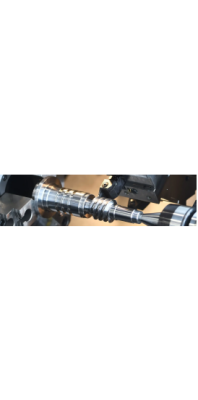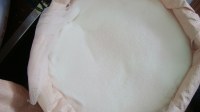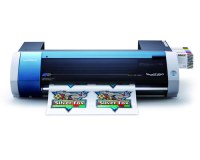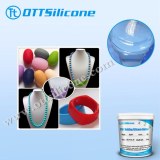Bolts are essential mechanical components used in various industries for fastening and securing objects together. These threaded fasteners are typically made from steel, stainless steel, or other durable materials, providing strength and stability. Bolts come in various sizes and types, such as hex bolts, carriage bolts, and eye bolts, each designed for specific applications. They are used in conjunction with nuts, washers, and other components to create strong, long-lasting connections in construction, automotive, aerospace, and many other fields. The proper selection and use of bolts are crucial for maintaining the structural integrity and safety of any assembled product or structure.
The Benefits of CNC Machining for Bolt Manufacturing
The benefits of CNC machining for China bolt manufacturing are numerous, including enhanced precision, consistency, and efficiency. This computer-controlled process allows for the creation of complex bolt in China designs with tight tolerances, ensuring superior fit and performance. CNC machining reduces human error and enables rapid production of both small and large quantities, catering to diverse industry needs. Additionally, this technology minimizes material waste and optimizes the use of raw materials, contributing to cost-effectiveness and sustainability. Overall, CNC machining revolutionizes bolt manufacturing, delivering high-quality, reliable fasteners for various applications.
Different Types of Bolts
Different types of bolts serve diverse purposes in various industries, providing essential fastening solutions for a wide range of applications. Here's an overview of some common types of bolts:
Forged Bolts:
①Hex Bolts:
Forged with a hexagonal head and threaded shaft.
Commonly used in heavy-duty applications due to their strength.
②Carriage Bolts:
Forged with a smooth, rounded head and a square neck beneath.
Ideal for applications requiring a visually appealing finish.
③Eye Bolts:
Forged with a looped head (eye) for attaching cables or hooks.
Often used in lifting applications or as anchor points.
Cold-Formed Bolts:
①Flange Bolts:
Cold-formed with an enlarged, flat flange under the head.
Designed for applications requiring load distribution.
②Toggle Bolts:
Manufactured using a spring-loaded mechanism for anchoring heavy items.
Suitable for hollow wall installations.
Thread Rolling Bolts:
①U-Bolts:
Thread rolling process used for creating U-shaped bolts with threaded ends.
Commonly employed in securing , tubes, and cables.
②Anchor Bolts:
Thread rolling ensures precise threads for stability when embedded in concrete.
Used in structural and foundation applications.
Hot-Forged Bolts:
①Elevator Bolts:
Hot-forged with a flat head and shallow, squared-off top.
Ideal for use in conveyor systems and elevator buckets.
②Plow Bolts:
Specifically designed through hot forging for plowing applications.
Features a flat head and a square neck to prevent turning.
Precision Machined Bolts:
Different Types of Bolts
①Tension Control Bolts:
Machined with specialized designs featuring splines or grooves.
Requires a special wrench for precise tensioning during installation.
②J-Bolts:
Precision machining creates J-shaped bolts commonly used for hanging items.
Often used in construction and for supporting .
Fully Threaded Bolts:
①Stud Bolts:
Fully threaded bolts without a head, designed for use with nuts.
Machined for precision and used in flanged connections for pipelines and pressure vessels.
Different Types of Bolts
These are just a few examples of the diverse range of bolts available, each tailored to meet specific needs in industries ranging from construction and automotive to manufacturing and infrastructure. The choice of bolt type depends on factors such as the application, load requirements, and environmental conditions.
Choosing high-quality bolts is essential to ensure the safety and reliability of structures and assemblies. Here are some key factors to consider when selecting bolts:
Material Quality:
Opt for bolts made from high-quality materials, such as stainless steel or alloy steel, known for their strength and corrosion resistance.
Consider the environmental conditions the bolts will be exposed to and choose materials that can withstand those conditions.
Strength and Grade:
Pay attention to the strength and grade markings on the bolts. Higher-grade bolts often have better tensile and yield strengths.
Match the bolt grade to the specific requirements of your application, ensuring it can handle the expected loads.
Coating and Finish:
Bolts are often coated to enhance their durability and corrosion resistance. Common coatings include zinc plating, galvanization, or other corrosion-resistant coatings.
Choose coatings that are suitable for the intended environment, such as outdoor or high-moisture conditions.
Size and Thread Type:
Select bolts of the correct size and thread type for your application. The diameter, length, and thread pitch should match the requirements of the joint being fastened.Ensure that the threads are clean, well-formed, and undamaged.
Application-Specific Features:
Consider any specific features required for your application, such as specialized coatings, anti-corrosion properties, or unique head types.
Some applications may demand bolts with specific characteristics, such as those designed for high-temperature environments.
As a bolt factory, we can provide kinds of bolt for sale, and the bolt price is reasonable, if you have needs, please contact us.
If you are looking for a reliable high precision machining supplier, please choose us, and we will be your best partner.
Ubicación : A1 Building,Rongchang Industrial park,No.440 Hedong Zone,Hengkeng,GuanLan,Longhua district,ShenZhen city,Guangdong province,China, 528400 Guangdong,
Persona a contactar : precision hhc, 0755 81781342








